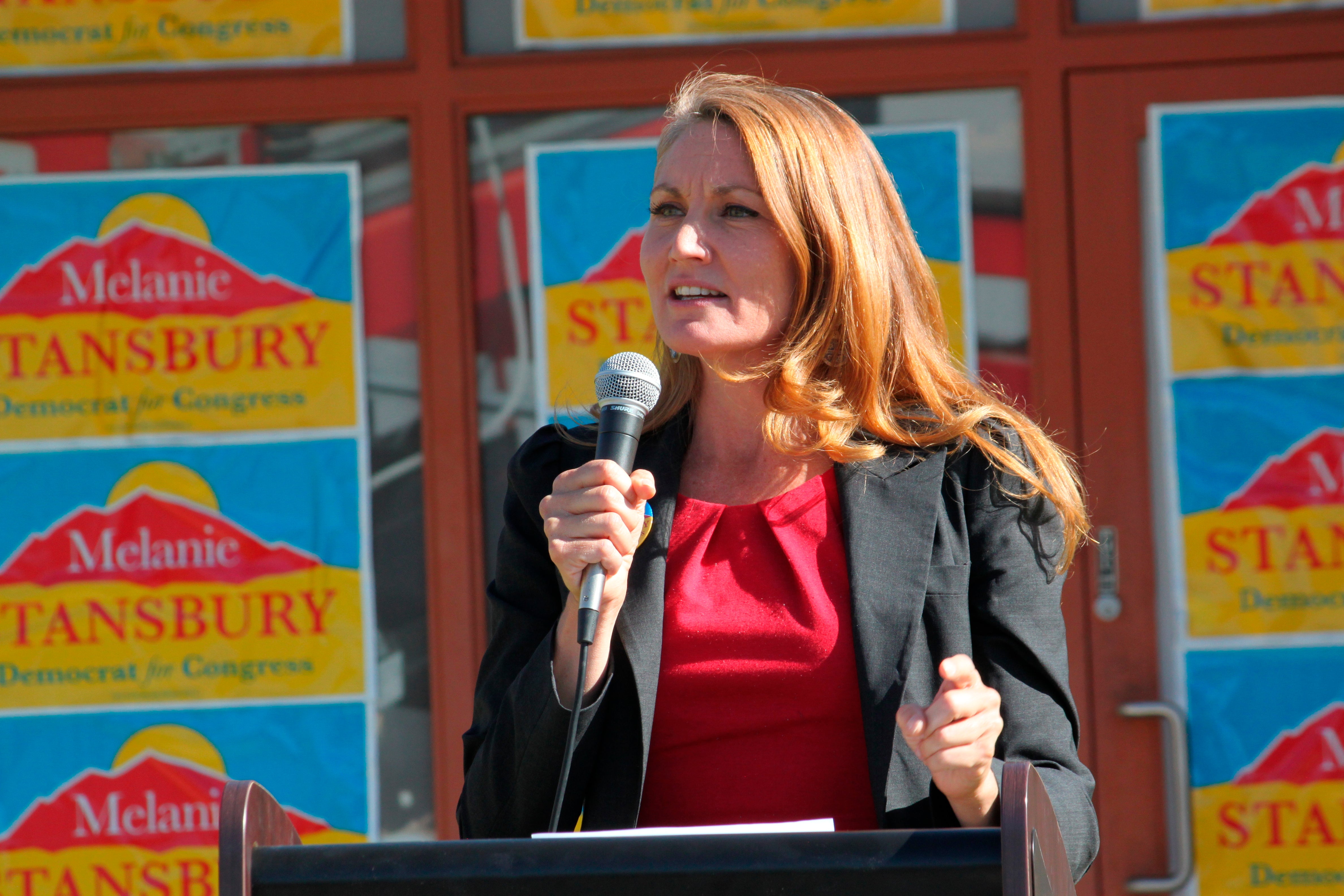Special House election measures political pulse after Trump
A special congressional election is testing the pulse of politics in the Albuquerque metro area and a few outlying rural communities at a turning point in the pandemic and economic recovery

Your support helps us to tell the story
From reproductive rights to climate change to Big Tech, The Independent is on the ground when the story is developing. Whether it's investigating the financials of Elon Musk's pro-Trump PAC or producing our latest documentary, 'The A Word', which shines a light on the American women fighting for reproductive rights, we know how important it is to parse out the facts from the messaging.
At such a critical moment in US history, we need reporters on the ground. Your donation allows us to keep sending journalists to speak to both sides of the story.
The Independent is trusted by Americans across the entire political spectrum. And unlike many other quality news outlets, we choose not to lock Americans out of our reporting and analysis with paywalls. We believe quality journalism should be available to everyone, paid for by those who can afford it.
Your support makes all the difference.A special congressional election is checking the political pulse of politics across the Albuquerque metro area and a few outlying rural communities in one of the few House campaigns since President Joe Biden took office.
Four names are on the ballot in Tuesday's election to succeed Deb Haaland in Congress after her confirmation as secretary of the U.S. Interior Department. After weeks of early voting, polling locations are closed on Sunday and Monday before reopening on Election Day with allowances for same-day registration.
New Mexico's 1st Congressional District has heavily favored Democratic candidates in recent years, shunning President Donald Trump with a gap of 23 percentage points in 2020 and reelecting Haaland with a margin of 16 percentage points as voter participation reached an all-time high.
Those margins bode well for Democratic nominee and second-term state Rep. Melanie Stansbury, as she confronts Republican state Sen. Mark Moores. Republicans hope to erode the 219-211 Democratic majority in the U.S. House of Representatives ahead of midterm elections in 2022.
Stansbury, a consultant on land use and water policy, has embraced Biden’s core agenda for post-pandemic economic recovery, free universal preschool and infrastructure spending that modernizes energy and transportation sectors to address global warming. In recent debates, she has endorsed a $15 national minimum wage, reforms to address police misconduct and systemic racism, and a more humanitarian approach to immigration.
Moores has emphasized the need for aggressive drug interdiction and immigration enforcement along the U.S. border with Mexico and uninterrupted oil leasing on federal land as a crucial source of employment in New Mexico. His campaign has seized on concerns about public safety and crime as a core issue, backing more federal dollars for police body cameras that are required in New Mexico and voicing support for police officers.
A hardline approach to crime by Trump in 2020 fell flat with Albuquerque-area voters after he sent federal agents to bolster local law enforcement efforts. Still, crime remains an issue for the city.
Two additional candidates are vying for untethered voters in a state with strong currents of libertarian politics.
Independent contender Aubrey Dunn Jr., a former Republican elected to statewide office as land commissioner who didn't seek reelection in 2018, has cast himself as a staunch defender of gun rights and an experienced steward of public lands. Libertarian nominee Chris Manning, who lives far outside the 1st District in Farmington, is campaigning on an unorthodox plan to reduce health care costs by eliminating employer-based coverage and insurance requirements.
The potential for low turnout in the vacancy election adds an element of uncertainty — and a sense of rare opportunity among Republicans, who account for 31% of registered voters across the 1st Congressional District.
The voting district encompasses Albuquerque, rural Torrance County and other outlying areas that include the Indigenous community of Sandia Pueblo.
Registered Democrats dominated early voting, casting roughly twice as ballots as registered Republicans as of Friday.
Political science professor Lonna Atkeson, of the University of New Mexico, notes that both major-party candidates have delved into attack ads and negative campaigning — a sign that neither campaign is confident.
“Nobody’s felt confident enough that they can just ride it out in a positive way. So they’re both feeling a little stressed,” Atkeson said. “I mean, we never saw Deb Haaland do a negative ad.”
The Democratic National Committee brought Doug Emhoff, the husband of Vice President Kamala Harris, to New Mexico on Thursday to campaign on Stansbury’s behalf. At a rally with labor unions and other supporters, Emhoff acknowledged the thin margin Democrats have in Congress and said electing Stansbury would help to ensure the party's legislative initiatives make it to the president's desk.
Moores has repeatedly sought to link Stansbury to the so-called BREATHE Act proposal from the Movement for Black Lives that would divest taxpayer spending from traditional policing agencies and invest in alternative approaches to public safety. And he says Stansbury voted in 2019 for a bill that benefitted her consulting client.
Stansbury said she has stood by law enforcement in coordinating spending on police infrastructure and initiatives at the state Legislature. She has bashed Moores for opposing some pandemic relief measures while accepting $1.8 million in federal aid at his medical testing business.
Moores frequently invokes Latino family ties that date back to the region's Spanish colonial era, in a state where Hispanic pride is an enduring staple of politics.
Atkeson sees that as an overt push by Moores to win over socially conservative Latinos who might otherwise vote Democrat.
The 1st Congressional District has been controlled by Democrats since 2009.
The seat has consistently been a stepping stone to higher office for Republican and Democratic politicians, including now-deceased Interior Secretary Manuel Lujan Jr., former U.S. Air Force Secretary Heather Wilson, U.S. Sen. Martin Heinrich and Gov. Michelle Lujan Grisham.